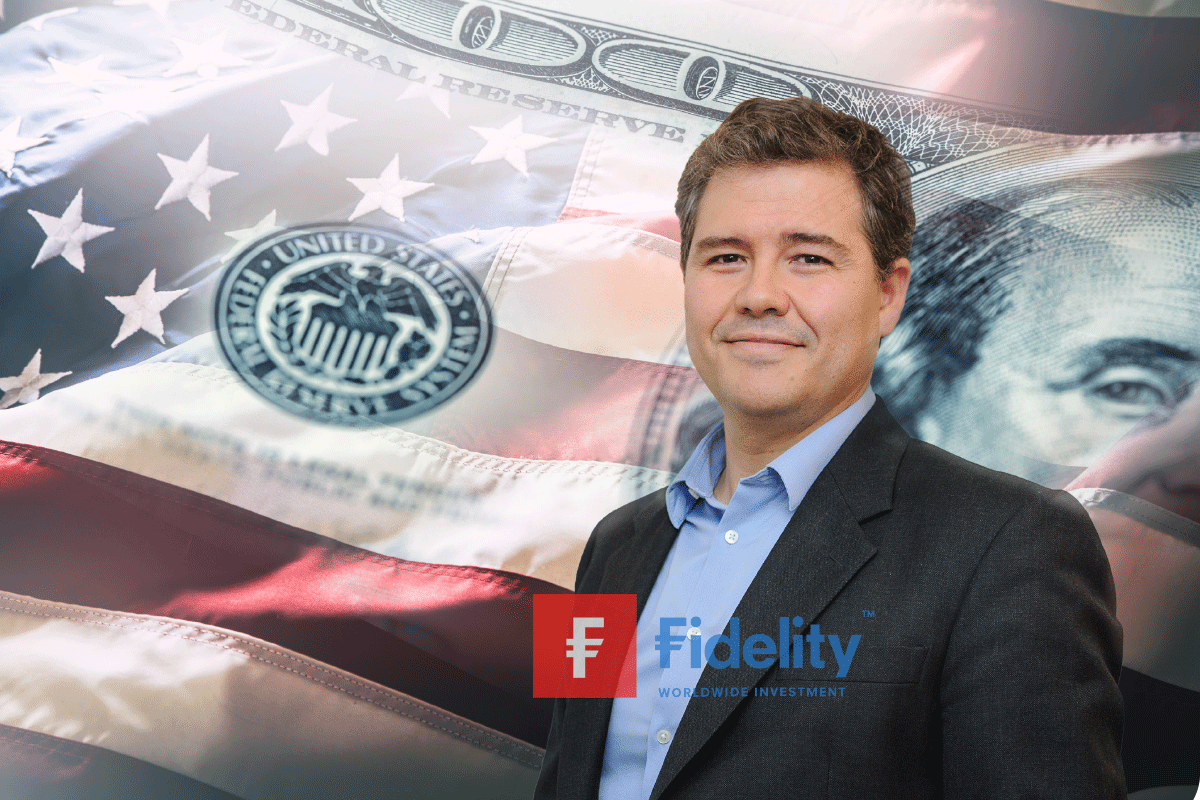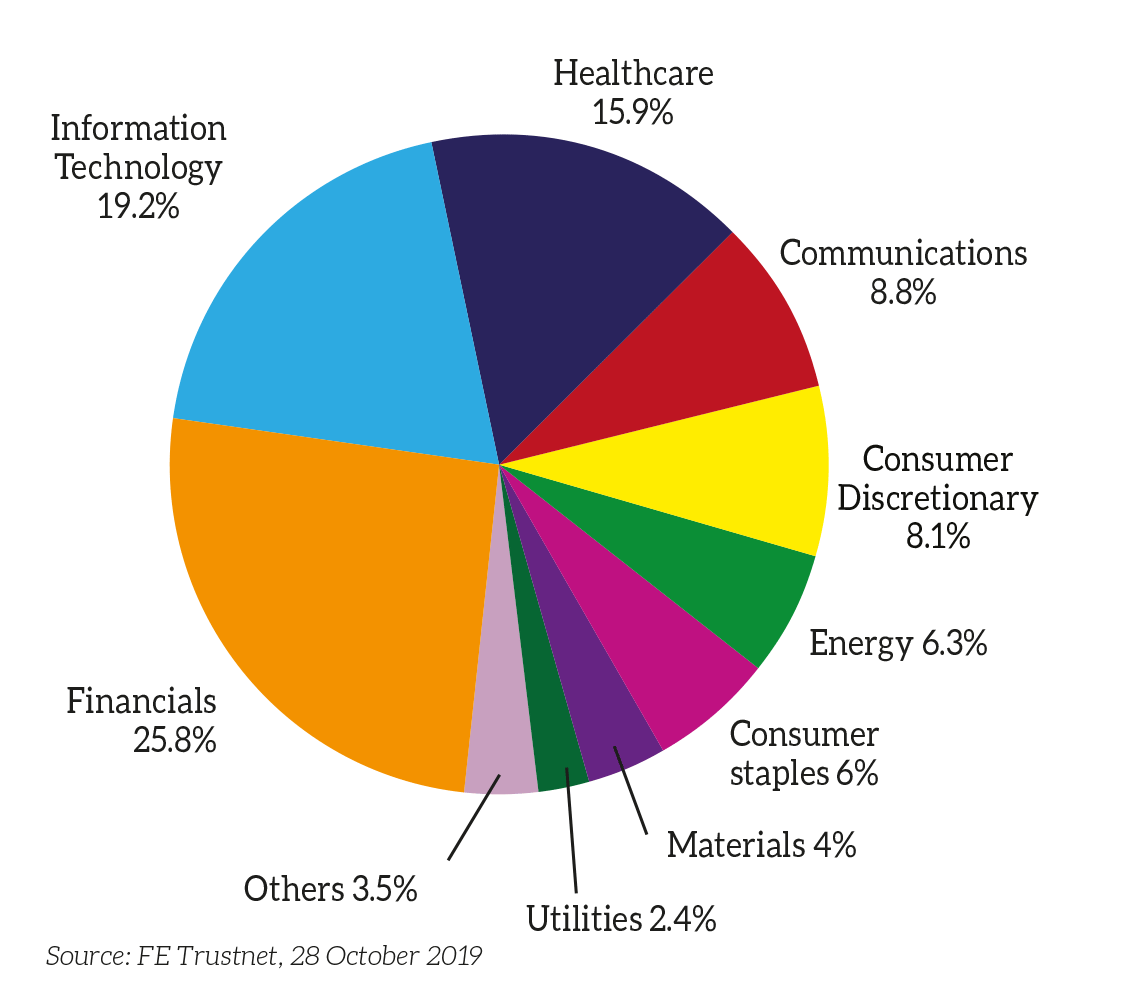Moneywise First 50 interview: Angel Agudo, Fidelity American Special Situations fund
Angel Agudo, the manager of Fidelity’s American Special Situations fund, talks to Edmund Greaves about…
4th December 2019 03:35
by Edmund Greaves from interactive investor
Angel Agudo, the manager of Fidelity’s American Special Situations fund, talks to Edmund Greaves about the fund’s objective, his own attitude to investing and his tips for novice investors

What does the Fidelity American Special Situations fund do?
The fund’s objective is to outperform the S&P 500 [an index of the largest listed companies in the US] over the long term. It focuses on US companies.
Why should people invest in your fund?
The US is a great market, not only because lately it has done better than the rest of the world, but also because it is a good economy and it is very flexible.
It is not by chance that the US economy has done well. It has an ecosystem of universities, private companies, government and rule of law.
I run a concentrated, value-minded fund of stocks with a specific story or risk [investing in a small number of companies that are undervalued for a specific reason].
I also look for ‘downside protection’ in the stocks I invest in – I do better in down markets than most.
What is downside protection?
The best way of compounding your money over time is not ever losing too much. If you lose half your money, to get back to where you were you would have to double it.
While I don’t shy away from an idea that has a lot of potential to grow, I prefer to be more conservative. There is no free lunch, though. When markets go up 50% in a year, I probably won’t do quite as well.
What gets you out of bed in the morning?
For me, I have the best job in the world. I get to study every day. I learn new things. I get to put into action what I learn every day. I get to check every day if I’m wrong, because the market is very quick at teaching you.
I come to work with a lot of smart, diverse people with different ways of investing, ideas and backgrounds.
What was the first thing you invested in?
An apartment I bought when I was fresh out of university. I had very little money and I bought what I could. I bought it directly from a bank; it was one of these ‘distressed assets’ that the banks were selling.
It was amazing – I could buy cheaply because people didn’t want it. I worked hard not to be over-leveraged [take on too much debt] and let time work for me. And although very modest, it turned out to be a very good investment.
What’s the best decision you have made for the fund?
I bought Microsoft when the share price was below $30 (£23.33) [it is now around $142 (£110.46)] because it had a fantastic balance sheet, but it was disliked by everyone.
I thought, if the company was this bad, how come it was making so much money year in, year out?
My investment thesis was to ask myself: “If I was the chief executive, what would I do?”
I would use the money that the company generates. I would control costs instead of spending a lot of money in unfruitful ideas. And I would give a bit back to the public.
Our luck was that Satya Nadella came in as Microsoft’s new chief executive a year after I bought the stock and effectively did everything I had hoped, instantly. The value of the stock went up a lot.
And the worst?
I always say my biggest mistake is selling too early. For example, I sold Nvidia, a chip manufacturer specialised in PC gaming, at $45 (£35).
I bought the company when it was extremely attractive valuation-wise, below $20 (£15.55). People thought that the number of PC gamers would go down and move to other alternatives.
My investment thesis was that even if Nvidia chips are only used for PCs and games, they still make a lot of money. And these chips can also be used in cars and artificial intelligence.
It went to around $30 (£23.33), and I sold half of the position. And then at around $45 (£35) I sold the rest, because I believed the price already reflected its value. But it was a huge mistake because the stock went to $300 (£233.35).
What one tip would you give a beginner investor?
The most important thing is always to ask “what if?”
Whenever somebody tells you or you read a newspaper article that says: “This is a good company” – say to yourself: “What if it’s not so good?”
The same is true on the other side. If someone tells you: “Don’t buy this company” or don’t buy this sector” because it is bad, just ask yourself, what could be wrong about that?
When you buy a fund, index or stock, it is key to find something different from what the market – and most people – believe about it.
The manager behind the fund
Angel Agudo joined Fidelity in 2005 as an analyst and had various roles before becoming the lead portfolio manager at Fidelity in December 2012 with responsibility for the FF America Fund (SICAV) from June 2014.
Mr Agudo started his career with Orla in 1997 in medical equipment design and sales, before moving to LVMH in IT and Operations. He holds an MBA from IMD Business School Lausanne and an MSc in Mechanical Engineering from ICAI (Madrid).
Regional breakdown

Discrete performance of the fund over five years (%)
Period | 0-12 m | 12-24 m | 24-36 m | 36-48 m | 48-60 m |
Fidelity American Special Situations W Acc | 3.8 | 4.8 | 4.6 | 33.3 | 16.7 |
IA North America | 13 | 6.7 | 12 | 29.7 | 9.7 |
Source: FE Trustnet, 28 October 2019
# | Holding | % |
1 | EXELON CORP | 2.41% |
2 | Bank of New York Mellon Corp ORD | 2.49% |
3 | COLGATE-PALMOLIVE CO | 2.53% |
4 | FAIRFAX FINL HLDGS LTD | 3.08% |
5 | CHEVRON CORP | 3.2% |
6 | WELLS FARGO & CO | 3.25% |
7 | T-MOBILE US INC | 3.29% |
8 | WILLIS TOWERS WATSON PLC | 4.81% |
9 | ORACLE CORP | 5.41% |
10 | BERKSHIRE HATHAWAY INC | 5.75% |
Source: FE Trustnet, 28 October 2019
This article was originally published in our sister magazine Moneywise, which ceased publication in August 2020.
These articles are provided for information purposes only. Occasionally, an opinion about whether to buy or sell a specific investment may be provided by third parties. The content is not intended to be a personal recommendation to buy or sell any financial instrument or product, or to adopt any investment strategy as it is not provided based on an assessment of your investing knowledge and experience, your financial situation or your investment objectives. The value of your investments, and the income derived from them, may go down as well as up. You may not get back all the money that you invest. The investments referred to in this article may not be suitable for all investors, and if in doubt, an investor should seek advice from a qualified investment adviser.
Full performance can be found on the company or index summary page on the interactive investor website. Simply click on the company's or index name highlighted in the article.